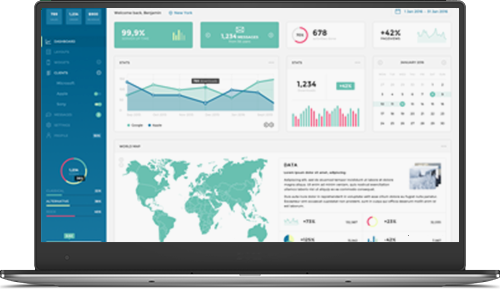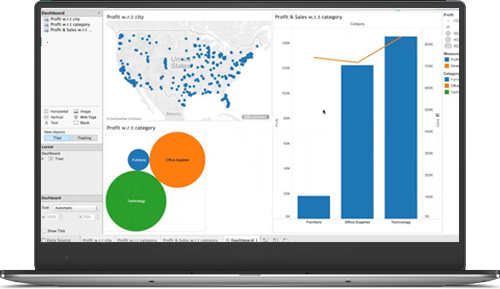Discover how a bimodal integration strategy can address the major data management challenges facing your organization today.
Get the Report →Add Apache HBase Connectivity to Tableau
A powerful set of certified data connectors that simplify the process of accessing enterprise data in real-time. Connect with Apache HBase data from Tableau Deskop, Tableau Server, & Tableau Data Management solutions.

Full Metadata Discovery
Intelligent rowscan, type detection, relationship exploration and support for unstructured data.

Robust SQL-92 Engine
Rich SQL-92 engine with support for bulk operations, push-down, client functions, and aggregation

Unmatched Performance
Optimized performance down to the socket level, our drivers offer unmatched performance.

Enterprise-Class Security
Advanced Security and Authentication. Secure TLS / SSL data encryption.
Certified Tableau Connectivity
-
100% Certified Tableau Connectivity
Native Tableau Connectors seamlessly integrate with Tableau BI and Data Prep to enable real-time data connectivity with Apache HBase.
-
Comprehensive Metadata Discovery
Extensive schema discovery capabilities for Apache HBase. Explore tables, columns, keys, and other data constructs based on user identity.
-
Flexible NoSQL flattening
Easily connect Tableau directly with complex heirarchical data through flexible and extensible NoSQL flattening.
Learn more: Parsing Hierarchical Data
-
Blazing Data Connectivity
Our drivers push the boundaries of data access, optimizing socket-level streaming and compression capabilities, and delivering truly exceptional data access.
Learn more: Unmatched Performance
-
Easily Customizable and Configurable
The data model exposed by our Tableau Connectors can easily be customized to add or remove tables/columns, change data types, etc. without requiring a new build. These customizations are supported at runtime using human-readable schema files that are easy to edit.
-
Enterprise-class Security
Includes standard Enterprise-class security features such as TLS/ SSL data encryption for all client-server communications.
Complex Query Processing
The CData HBase Connector contains an embedded SQL Engine that pushes supported SQL operations to the data source and processes unsupported operations client-side (Query Folding).
- Issue complex queries using SQL-92 compliant operations and clauses.
- Leverage server-side data processing for supported operations.
- Build new relationships and custom datasets.



High-Performance Data Delivery
Our HBase Tableau Connector is capable of delivering exceptional real-time data access. All of our Tableau Connectors are based on a highly-efficient query engine that has been optimized down to the socket level with streaming and compression capabilities.
- Enable real-time analytics through unmatched data processing.
- Request data as quickly as possible using server-side paging and bulk capabilities.
Popular Tableau Videos:

Download the HBase Connector
Building custom dashboards & reports that connect with live HBase data has never been easier. Download the CData Tableau Connector for HBase now, and get connected.
Download Now






 Certified Data Connectivity
Certified Data Connectivity
